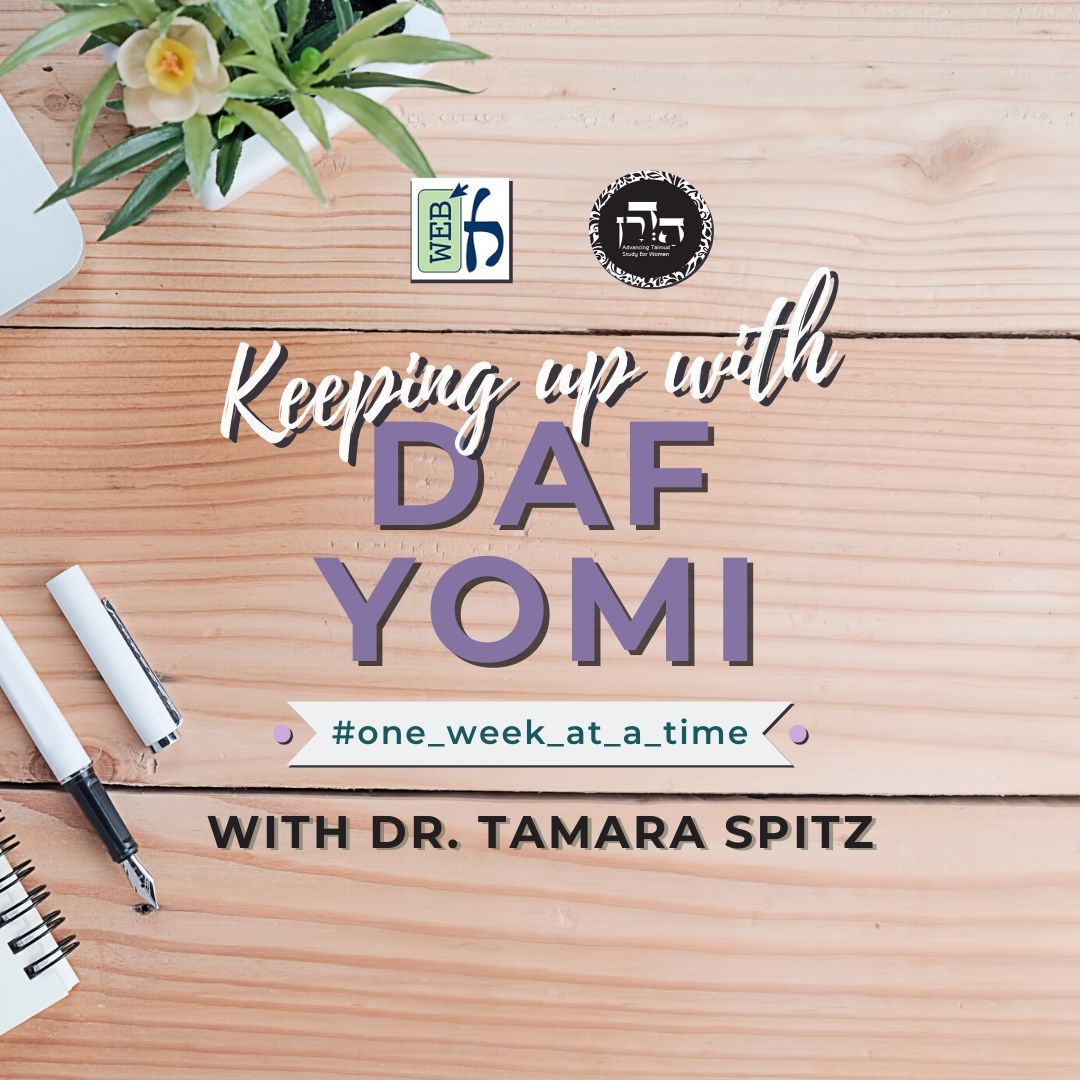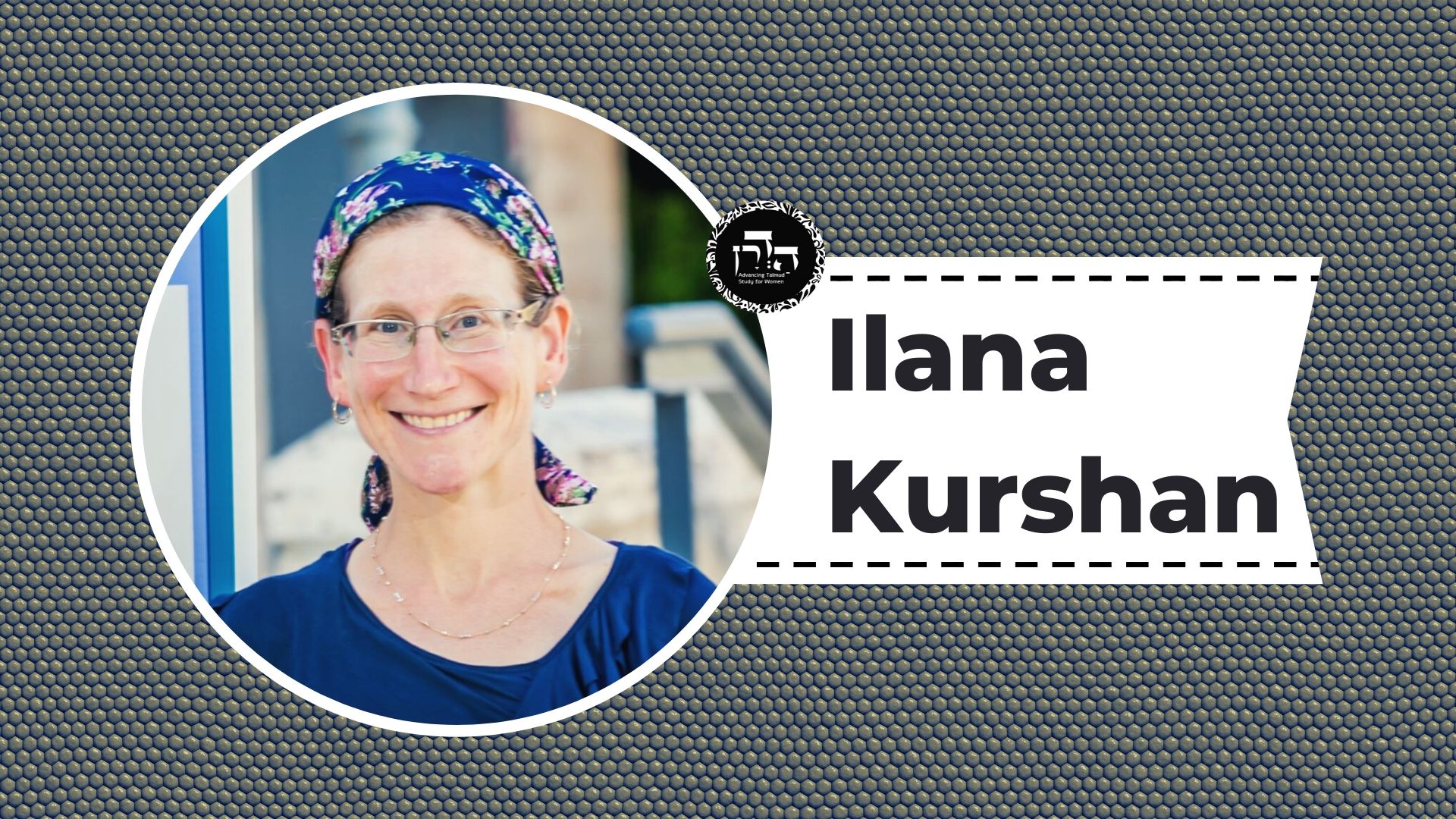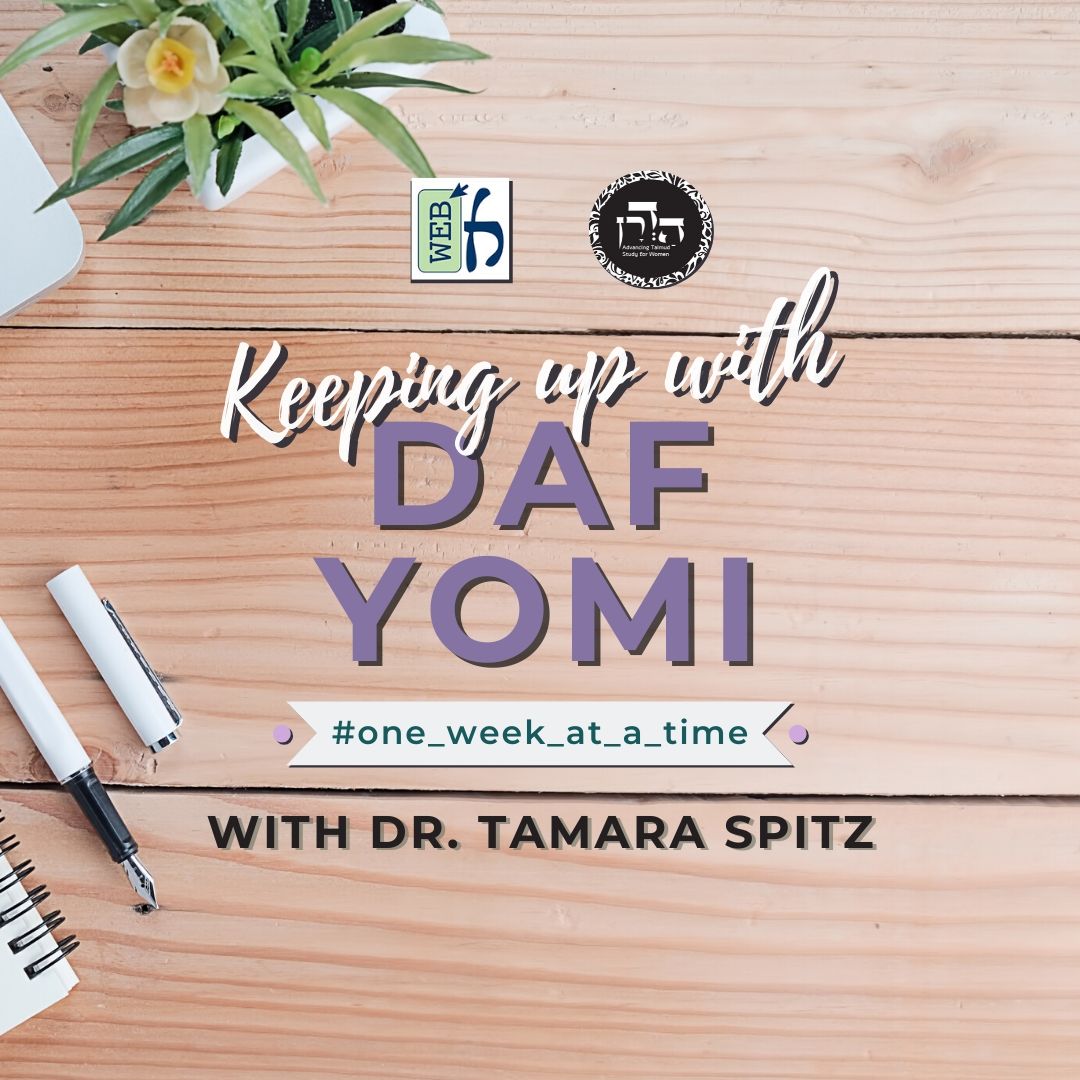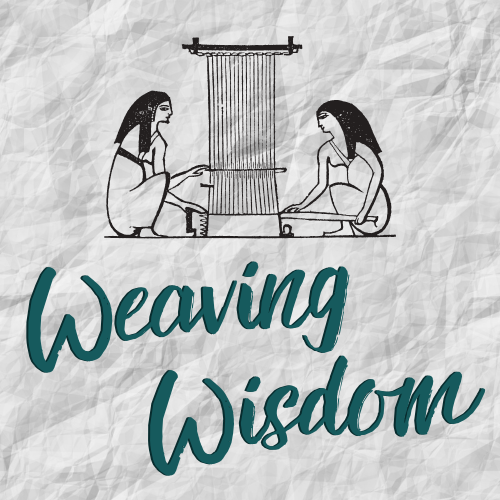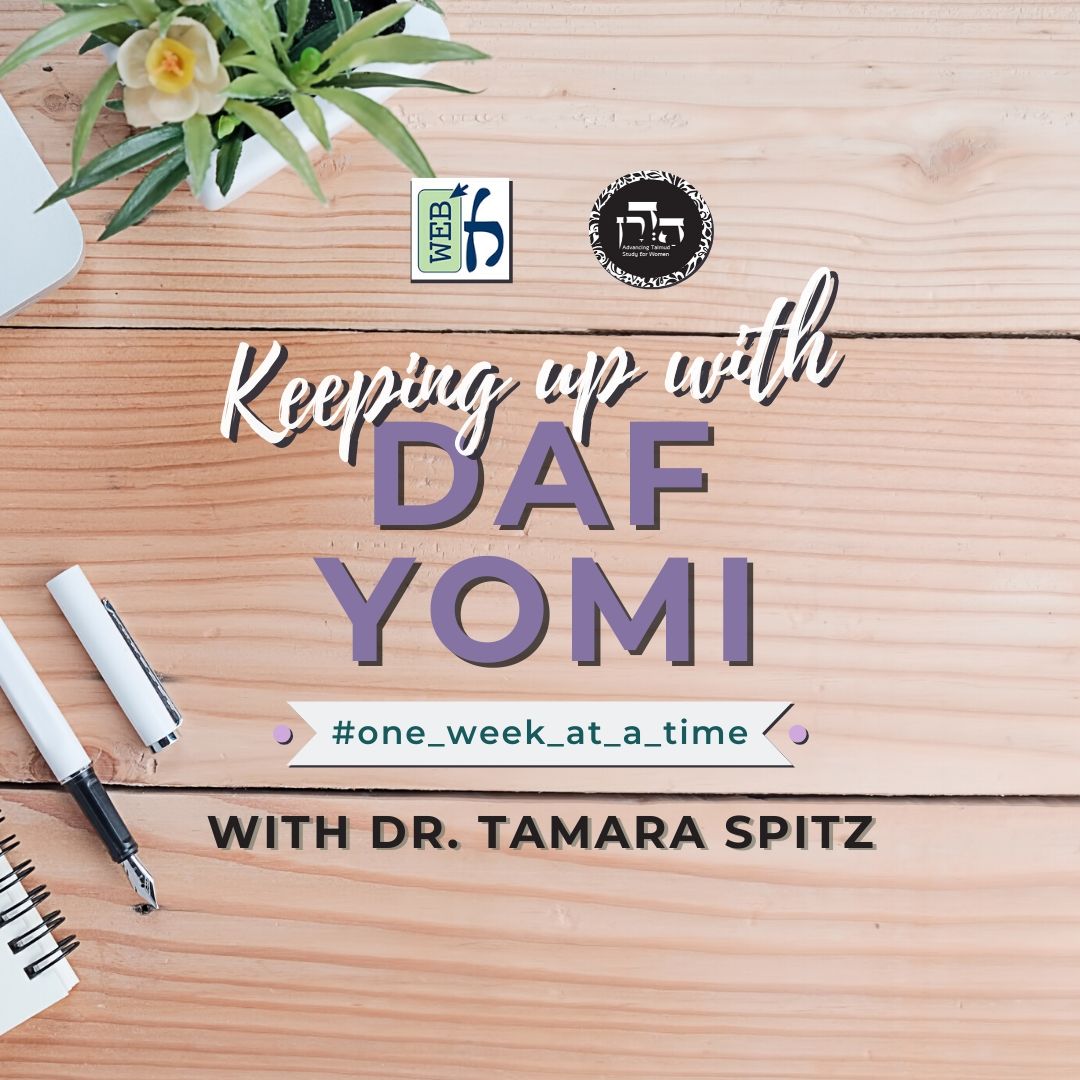A cup of ikarin – it is forbidden on Shabbat but how can one drink it on a regular day if it causes one to become sterile – isn’t that forbidden. The gemara attempts to establish the case in the mishna to be one where one would not be commanded – several attempts are rejected until the gemara finds an answer. Can one gargle with vinegar to help with tooth pain? Is vinegar good for one’s teeth? A braita says one can gargle and swallow – how does that work with our mishna? Rava and Abaye suggest different answers but Rava’s is questioned by something he holds elsewhere regarding going to the mikveh on Yom Kippur. One can annoint a wound with oil but not rose oil, as it was uncommon to use it and therefore it would be obvious that one was using it for medicinal purposes. Sons of kings used it more commonly and therefore it was allowed for them. Rabbi Shimon holds that everyone is like the sons of kings and it is permitted to all. Rav holds like Rabbi Shimon. The gemara questions how this can be the case as it is known that Rav does not hold like Rabbi Shimon. The gemara concludes that his reality was different and rose oil was commonly used and that’s why he allowed it and not because he agreed with Rabbi Shimon. The new chapter begins with tying knots – what types are prohibited by Torah law and which are permitted?
This month’s learning is dedicated to the refuah shleima of our dear friend, Phyllis Hecht, גיטל פעשא בת מאשה רחל by all her many friends who love and admire her. Phyllis’ emuna, strength, and positivity are an inspiration.
Want to dedicate learning? Get started here:


Today’s daily daf tools:
This month’s learning is dedicated to the refuah shleima of our dear friend, Phyllis Hecht, גיטל פעשא בת מאשה רחל by all her many friends who love and admire her. Phyllis’ emuna, strength, and positivity are an inspiration.
Today’s daily daf tools:
Delve Deeper
Broaden your understanding of the topics on this daf with classes and podcasts from top women Talmud scholars.
New to Talmud?
Check out our resources designed to help you navigate a page of Talmud – and study at the pace, level and style that fits you.
The Hadran Women’s Tapestry
Meet the diverse women learning Gemara at Hadran and hear their stories.
Shabbat 111
הַכֹּל מוֹדִים בִּמְחַמֵּץ אַחַר מְחַמֵּץ שֶׁהוּא חַיָּיב, שֶׁנֶּאֱמַר: ״לֹא תֵאָפֶה חָמֵץ״, ״לֹא תֵעָשֶׂה חָמֵץ״. בִּמְסָרֵס אַחֵר מְסָרֵס שֶׁהוּא חַיָּיב, שֶׁנֶּאֱמַר: ״וּמָעוּךְ וְכָתוּת וְנָתוּק וְכָרוּת״, אִם עַל כָּרוּת חַיָּיב, עַל נָתוּק לֹא כׇּל שֶׁכֵּן! אֶלָּא, לְהָבִיא נוֹתֵק אַחַר כּוֹרֵת שֶׁהוּא חַיָּיב. וְאֶלָּא בְּזָקֵן.
Everyone agrees that one who leavens a meal-offering after one who already leavened it is liable for the additional leavening, as it is stated: “It shall not be baked leavened” (Leviticus 6:10), and it is also stated: “No offering that you sacrifice to God shall be made with leaven” (Leviticus 2:11). The Sages interpreted this to mean that one is liable for every act of leavening performed on a Temple offering. Similarly, everyone agrees that one who castrates after one who castrates is liable, as it is stated: “Those whose testicles are bruised, or crushed, or torn, or cut, shall not be offered to the Lord, and you shall not do this in your land” (Leviticus 22:24). Presumably, if one is liable when the seminal vesicles are cut, when the testicles are detached altogether all the more so one is liable. Rather, this comes to include that one who detaches after one who cuts is liable. Apparently, one is liable for sterilizing one who is already castrated. Rather, we must say that it is permitted to use a remedy that causes sterility in an old man who is no longer capable of procreating.
וְהָאָמַר רַבִּי יוֹחָנָן הֵן הֵן הֶחְזִירוּנִי לְנַעֲרוּתִי! אֶלָּא בְּאִשָּׁה. וּלְרַבִּי יוֹחָנָן בֶּן בְּרוֹקָא דְּאָמַר עַל שְׁנֵיהֶם הוּא אוֹמֵר: ״וַיְבָרֶךְ אוֹתָם אֱלֹהִים וַיֹּאמֶר לָהֶם פְּרוּ וּרְבוּ״ — מַאי אִיכָּא לְמֵימַר? בִּזְקֵינָהּ, אִי נָמֵי בַּעֲקָרָה.
The Gemara asks: Didn’t Rabbi Yoḥanan say with regard to remedies that restore procreative ability: These have restored me to my youth? Apparently, even an elderly man can procreate with the proper remedy. Rather, the remedy for jaundice was discussed with regard to a woman, who is not commanded to reproduce. The Gemara asks: And according to Rabbi Yoḥanan ben Beroka, who said: The mitzva is incumbent on both of them, the man and the woman, as it states: “And God blessed them and God said to them: Be fruitful and multiply and fill the earth and conquer it” (Genesis 1:28), what is there to say? How could a woman use this remedy? In his opinion a woman is also commanded to procreate. The Gemara answers: In his opinion, this remedy may be used for an elderly woman or, alternatively, for a barren woman. He would agree that there is no prohibition to cause infertility in a woman who cannot conceive.
מַתְנִי׳ הַחוֹשֵׁשׁ בְּשִׁינָּיו — לֹא יְגַמֵּעַ בָּהֶן אֶת הַחוֹמֶץ, אֲבָל מְטַבֵּל הוּא כְּדַרְכּוֹ, וְאִם נִתְרַפֵּא — נִתְרַפֵּא. הַחוֹשֵׁשׁ בְּמׇתְנָיו — לָא יָסוּךְ יַיִן וָחוֹמֶץ, אֲבָל סָךְ הוּא אֶת הַשֶּׁמֶן. וְלֹא שֶׁמֶן וֶורֶד. בְּנֵי מְלָכִים סָכִין שֶׁמֶן וֶרֶד עַל מַכּוֹתֵיהֶן, שֶׁכֵּן דַּרְכָּן לָסוּךְ בְּחוֹל. רַבִּי שִׁמְעוֹן אוֹמֵר: כׇּל יִשְׂרָאֵל בְּנֵי מְלָכִים הֵם.
MISHNA: One who is concerned about pain in his teeth may not sip vinegar through them on Shabbat for medicinal purposes: however, he may dip his food in vinegar in his usual manner and eat it, and if he is healed by the vinegar, he is healed. One who is concerned about pain in his loins may not smear wine and vinegar on them on Shabbat because that is a medical treatment. However, one may smear oil on them. However, one may not use rose oil, which is very expensive and used exclusively as a cure. However, princes may smear with rose oil on their wounds on Shabbat because it is their usual manner to smear rose oil on themselves during the week for pleasure. Rabbi Shimon says: All of the Jewish people are princes, and it is permitted for them to smear rose oil on themselves on Shabbat.
גְּמָ׳ רָמֵי לֵיהּ רַב אַחָא אֲרִיכָא דְּהוּא רַב אַחָא בַּר פָּפָּא לְרַבִּי אֲבָהוּ: תְּנַן, הַחוֹשֵׁשׁ בְּשִׁינָּיו — לֹא יְגַמֵּעַ בָּהֶן אֶת הַחוֹמֶץ. לְמֵימְרָא דְּחוֹמֶץ מְעַלֵּי לְשִׁינַּיִם?! וְהָכְתִיב: ״כַּחֹמֶץ לַשִּׁינַּיִם וְכֶעָשָׁן לָעֵינָיִם״! לָא קַשְׁיָא: הָא בְּקִיּוּהָא דְפֵרֵי, הָא בְּחַלָּא. וְאִיבָּעֵית אֵימָא, הָא וְהָא בְּחַלָּא: הָא דְּאִיכָּא מַכָּה, הָא דְּלֵיכָּא מַכָּה. אִיכָּא מַכָּה — מַסֵּי, לֵיכָּא מַכָּה — מְרַפֵּי.
GEMARA: Rav Aḥa Arikha, so named for his height as the word arikha literally means long in Aramaic, who is also known as Rav Aha bar Pappa, raised a contradiction before Rabbi Abbahu: We learned in the mishna that one who is concerned about pain in his teeth may not sip vinegar through them on Shabbat. Is that to say that vinegar is beneficial for teeth? Isn’t it written: “Like vinegar to the teeth, and like smoke to the eyes, so is the lazy one to those who send him” (Proverbs 10:26)? The Gemara answers: This is not difficult, as there is a distinction. This verse, which indicates that vinegar is harmful for teeth, is referring to fruit vinegar. The mishna, which indicates that vinegar is beneficial for teeth, is referring to wine vinegar. And if you wish, say instead that both this and that are referring to wine vinegar. In that case, the distinction is as follows: The mishna, which states that vinegar is beneficial for teeth, is referring to a situation in which there is a wound in the teeth. That verse, which indicates that it is harmful for teeth, is referring to a situation in which there is not a wound in the teeth. The Gemara explains: Where there is a wound, vinegar heals; where there is not a wound, it weakens the teeth.
לֹא יְגַמֵּעַ בָּהֶן אֶת הַחוֹמֶץ. וְהָתַנְיָא: לֹא יְגַמֵּעַ וּפוֹלֵט, אֲבָל מְגַמֵּעַ וּבוֹלֵעַ! אֲמַר אַבָּיֵי: כִּי תְּנַן נָמֵי מַתְנִיתִין, מְגַמֵּעַ וּפוֹלֵט תְּנַן. רָבָא אָמַר: אֲפִילּוּ תֵּימָא מְגַמֵּעַ וּבוֹלֵעַ, כָּאן — לִפְנֵי טִיבּוּל, כָּאן — לְאַחַר טִיבּוּל.
We learned in the mishna: One may not sip vinegar through his teeth on Shabbat. The Gemara asks: Wasn’t it taught in a baraita that the prohibition to sip vinegar on Shabbat means that one may not sip and spit it out; however, one may sip and swallow it? Abaye said: When we learned this ruling in the mishna, we learned it with regard to the case of one who sips and spits it out. Rava said: Even if you say that the mishna prohibits sipping vinegar even in a case where one sips and swallows it, there is still a distinction. Here, the baraita permits sipping vinegar before dipping one’s food in it, as he appears to be doing so for pleasure. Here, the mishna prohibits sipping vinegar after dipping, when it is clear that one is doing so for medicinal purposes.
וְנֵימָא: מִדְּלִפְנֵי טִיבּוּל שְׁרֵי — לְאַחַר טִיבּוּל נָמֵי שְׁרֵי. דְּשָׁמְעִינַן לֵיהּ לְרָבָא דְּאִית לֵיהּ ״הוֹאִיל״.
The Gemara asks: And let us say that since before dipping it, sipping it is permitted, after dipping it sipping it is also permitted. As we heard that Rava accepts the principle of since. The principle of since is illustrated in the following example: The Sages discussed whether one may immerse himself in a ritual bath on Shabbat, even though immersion is similar to repairing oneself through purification and is therefore prohibited. The conclusion of that discussion was that immersion is permitted because it appears as if the individual is bathing for pleasure. On the other hand, immersion is prohibited on Yom Kippur, as bathing for pleasure is prohibited then.
דְּאָמַר רָבָא: לֵיכָּא מִידֵּי דִּבְשַׁבָּת שְׁרֵי וּבְיוֹם הַכִּפּוּרִים אָסוּר, הוֹאִיל דִּבְשַׁבָּת שְׁרֵי — בְּיוֹם הַכִּפּוּרִים נָמֵי שְׁרֵי!
Rava said: There is nothing that is permitted on Shabbat and prohibited on Yom Kippur. The principle is: Since it is permitted on Shabbat, it is also permitted on Yom Kippur. Although the reason to permit bathing on Shabbat does not apply on Yom Kippur, Rava nonetheless permits it due to the principle of since. The decrees of the Sages should be applied equally to whatever degree possible, without making distinctions for particular cases. Here, too, in the case of sipping vinegar, since it is permitted to sip vinegar before dipping food, it should also be permitted to sip vinegar after dipping food.
הֲדַר בֵּיהּ רָבָא מֵהָךְ. מִמַּאי דְּמֵהָךְ הֲדַר בֵּיהּ, דִילְמָא מֵהַהִיא הֲדַר בֵּיהּ? לָא סָלְקָא דַּעְתָּךְ, דְּתַנְיָא: כׇּל חַיָּיבֵי טְבִילוֹת טוֹבְלִין כְּדַרְכָּן, בֵּין בְּתִשְׁעָה בְּאָב בֵּין בְּיוֹם הַכִּפּוּרִים.
The Gemara answers: Rava retracted that statement and prohibited sipping vinegar. The Gemara asks: From where can it be determined that he retracted that statement? Perhaps he retracted this statement with regard to immersion in a ritual bath on Yom Kippur. The Gemara answers: It does not enter your mind to say so, as it was taught in a baraita: All obligated in immersions immerse in their usual manner, both on the Ninth of Av and on Yom Kippur. Rava certainly does not dispute this baraita.
הַחוֹשֵׁשׁ בְּמׇתְנָיו כּוּ׳. אָמַר רַבִּי אַבָּא בַּר זַבְדָּא אָמַר רַב: הֲלָכָה כְּרַבִּי שִׁמְעוֹן. לְמֵימְרָא דְּרַב כְּרַבִּי שִׁמְעוֹן סְבִירָא לֵיהּ? וְהָאָמַר רַב שִׁימִי בַּר חִיָּיא מִשְּׁמֵיהּ דְּרַב: הַאי מְסוֹכַרְיָיא דְּנָזְיָיתָא
We learned in the mishna: One who is concerned about pain in his loins may not smear rose oil on them on Shabbat, and Rabbi Shimon permits doing so. Rabbi Abba bar Zavda said that Rav said: The halakha is in accordance with the opinion of Rabbi Shimon. The Gemara is surprised at this: Is that to say that Rav holds in accordance with the opinion of Rabbi Shimon? Didn’t Rav Shimi bar Ḥiyya say the following in the name of Rav? With regard to this cloth stopper inserted into the spout of a barrel,
אֲסִיר לְהַדּוֹקֵיהּ בְּיוֹמָא טָבָא! בְּהָהִיא אֲפִילּוּ רַבִּי שִׁמְעוֹן מוֹדֶה. דְּאַבָּיֵי וְרָבָא דְּאָמְרִי תַּרְוַויְיהוּ: מוֹדֶה רַבִּי שִׁמְעוֹן בִּ״פְסִיק רֵישֵׁיהּ וְלָא יְמוּת״.
it is prohibited to insert it tightly on a Festival due to the prohibited labor of wringing. Doesn’t Rabbi Shimon permit performing an unintentional act from which a prohibited labor may ensue? The Gemara answers: In that case, even Rabbi Shimon concedes that it is prohibited, as it was Abaye and Rava who both said: Rabbi Shimon concedes in instances categorized as: Cut off its head and it shall not die. This category refers to situations where the ensuing prohibited labor is inevitable. In those kinds of cases, one is liable even according to Rabbi Shimon. Since stuffing a cloth into a barrel will inevitably lead to wringing wine from it, Rabbi Shimon concedes that doing so is forbidden.
וְהָאָמַר רַב חִיָּיא בַּר אָשֵׁי אָמַר רַב: הֲלָכָה כְּרַבִּי יְהוּדָה, וְרַב חָנָן בַּר אַמֵּי אָמַר שְׁמוּאֵל: הֲלָכָה כְּרַבִּי שִׁמְעוֹן. וְרַב חִיָּיא בַּר אָבִין מַתְנֵי לַהּ בְּלָא גַבְרֵי, רַב אָמַר: הֲלָכָה כְּרַבִּי יְהוּדָה, וּשְׁמוּאֵל אָמַר: הֲלָכָה כְּרַבִּי שִׁמְעוֹן! אֶלָּא אָמַר רָבָא: אֲנִי וַאֲרִי שֶׁבַּחֲבוּרָה תַּרְגֵּימְנָא, וּמַנּוּ — רַבִּי חִיָּיא בַּר אָבִין: הֲלָכָה כְּרַבִּי שִׁמְעוֹן, וְלָאו מִטַּעְמֵיהּ.
The Gemara asks again: Didn’t Rav Ḥiyya bar Ashi say that Rav said explicitly: The halakha is in accordance with the opinion of Rabbi Yehuda, and Rav Ḥanan bar Ami said that Shmuel said: The halakha is in accordance with the opinion of Rabbi Shimon. And Rav Ḥiyya bar Avin taught the same tradition without mentioning the names of the men who cited the statements, but cited it directly: Rav said: The halakha is in accordance with the opinion of Rabbi Yehuda, and Shmuel said: The halakha is in accordance with the opinion of Rabbi Shimon. Rather, Rava said: I and the lion of the group explained this. And the Gemara asks: And who is the lion of the group? It is Rabbi Ḥiyya bar Avin. He and Rava explained: The halakha is indeed in accordance with the opinion of Rabbi Shimon, but not for his reason.
מַאי ״הֲלָכָה כְּרַבִּי שִׁמְעוֹן וְלָאו מִטַּעְמֵיהּ״? אִילֵּימָא הֲלָכָה כְּרַבִּי שִׁמְעוֹן — דְּשָׁרֵי, וְלָאו מִטַּעְמֵיהּ — דְּאִילּוּ רַבִּי שִׁמְעוֹן סָבַר מַסֵּי, וְרַב סָבַר לָא מַסֵּי. וְסָבַר רַב לָא מַסֵּי? וְהָא מִדְּקָתָנֵי ״בְּנֵי מְלָכִים סָכִין עַל גַּבֵּי מַכּוֹתֵיהֶן שֶׁמֶן וֶורֶד״, מִכְּלָל דְּמַסֵּי. אֶלָּא: הֲלָכָה כְּרַבִּי שִׁמְעוֹן — דְּשָׁרֵי, וְלָאו מִטַּעְמֵיהּ — דְּאִילּוּ רַבִּי שִׁמְעוֹן סָבַר: אַף עַל גַּב דְּלָא שְׁכִיחַ, שְׁרֵי. וְרַב סָבַר: אִי שְׁכִיחַ — אִין, וְאִי לָא שְׁכִיחַ — לָא. וּבְאַתְרָא דְּרַב שְׁכִיחַ מִשְׁחָא דְוַורְדָּא.
The Gemara explains: What exactly is the meaning of the statement: The halakha is in accordance with the opinion of Rabbi Shimon, but not for his reason? If we say the halakha is in accordance with the opinion of Rabbi Shimon, who permits smearing rose oil, but not for his reason, because Rabbi Shimon holds that rose oil heals, and Rav holds that it does not heal, which is why he permits smearing it on Shabbat, then does Rav hold that rose oil does not heal? From the fact that it is taught: Princes smear rose [vered] oil on their wounds; by inference, it heals. Rather, it means: The halakha is in accordance with the opinion of Rabbi Shimon, who permits rose oil, but not for his reason. As Rabbi Shimon holds that although rose oil is uncommon and expensive, and anyone who sees one smearing it realizes that it is for medicinal purposes, nevertheless, it is permitted. And Rav holds that if rose oil is common in a given place, yes, one may smear it on himself; however, if it is not common there, it is not permitted. And in Rav’s place, roses were common, and that is why he permitted smearing with rose oil on Shabbat. However, in a place where rose oil is uncommon, he concedes to the Rabbis, who prohibited doing so.
הדרן עלך שמנה
שרצים
מַתְנִי׳ וְאֵלּוּ קְשָׁרִים שֶׁחַיָּיבִין עֲלֵיהֶן: קֶשֶׁר הַגַּמָּלִין וְקֶשֶׁר הַסַּפָּנִין, וּכְשֵׁם שֶׁהוּא חַיָּיב עַל קִישּׁוּרָן, כָּךְ הוּא חַיָּיב עַל הֶיתֵּרָן. רַבִּי מֵאִיר אוֹמֵר: כׇּל קֶשֶׁר שֶׁהוּא יָכוֹל לְהַתִּירוֹ בְּאַחַת מִיָּדָיו — אֵין חַיָּיבִין עָלָיו.
MISHNA: And these are knots for which one is liable to bring a sin-offering if one tied them on Shabbat: A camel driver’s knot and a sailor’s knot, both of which are meant to be permanent. And just as one is liable to bring a sin-offering for tying these knots, so too, he is liable to bring a sin-offering for untying them. Rabbi Meir says a principle: For tying any knot that one can untie with one of his hands, one is not liable to bring a sin-offering, because a loose knot of that sort is not considered permanent even if that was his intention.
גְּמָ׳ מַאי קֶשֶׁר הַגַּמָּלִין וְקֶשֶׁר הַסַּפָּנִין? אִילֵּימָא קִטְרָא דְּקָטְרִי בִּזְמָמָא, וְקִטְרָא דְּקָטְרִי בְּאִיסְטָרִידָא — הַאי קֶשֶׁר שֶׁאֵינוֹ שֶׁל קַיָּימָא הוּא! אֶלָּא קִיטְרָא דִזְמָמָא גּוּפֵיהּ, וּדְאִיסְטָרִידָא גּוּפַהּ.
GEMARA: The Gemara asks: What are a camel driver’s knot and a sailor’s knot? If you say that these are a knot that one uses to tie a strap to the camel’s nose ring in order to pull it and a knot that one uses to tie a rope to the ring [isterida] fixed to the bow of a ship when the ship is docked, then these knots are not meant to be permanent, as they are periodically untied. Rather, a camel driver’s knot is the knot that fixes the nose ring itself in the camel’s nose, and the sailor’s knot is the knot that fixes the ring itself to the ship. These knots are never untied and are permanent.
רַבִּי מֵאִיר אוֹמֵר כׇּל קֶשֶׁר כּוּ׳. בָּעֵי רַב אַחָדְבוּי אַחוּי דְּמָר אַחָא: עֲנִיבָה לְרַבִּי מֵאִיר מַהוּ? טַעְמֵיהּ דְּרַבִּי מֵאִיר מִשּׁוּם דְּיָכוֹל לְהַתִּירוֹ בְּאַחַת מִיָּדָיו הוּא — וְהָא נָמֵי יָכוֹל לְהַתִּירוֹ, אוֹ דִילְמָא טַעְמָא דְּרַבִּי מֵאִיר מִשּׁוּם דְּלָא מִיהַדַּק — וְהַאי [הָא] מִיהַדַּק. תֵּיקוּ.
We learned in the mishna that Rabbi Meir says a principle: For tying any knot that one can untie with one of his hands, one is not liable for tying it. Rav Aḥadvoy, brother of Mar Aḥa, raised a dilemma: With regard to tying a bow, what is the ruling according to Rabbi Meir? Is it permitted to tie it tightly on Shabbat or not? The dilemma is: Is the reason for the opinion of Rabbi Meir merely that because one can untie the knot with one of his hands it is not considered a permanent knot, and this bow too, he can untie it with one of his hands and therefore he would not be liable for tying on Shabbat? Or perhaps the reason for the opinion of Rabbi Meir is because typically a knot that can be untied with one hand is not particularly tight, and this bow is tight and therefore it is prohibited to tie it on Shabbat. This dilemma is not resolved, and the Gemara concludes: Let it stand unresolved.
מַתְנִי׳ יֵשׁ לְךָ קְשָׁרִין שֶׁאֵין חַיָּיבִין עֲלֵיהֶן כְּקֶשֶׁר הַגַּמָּלִין וּכְקֶשֶׁר הַסַּפָּנִין: קוֹשֶׁרֶת אִשָּׁה מִפְתַּח חֲלוּקָהּ, וְחוּטֵי סְבָכָה, וְשֶׁל פָּסִקְיָא, וּרְצוּעוֹת מִנְעָל וְסַנְדָּל, וְנוֹדוֹת יַיִן וָשֶׁמֶן, וּקְדֵירָה שֶׁל בָּשָׂר. רַבִּי אֱלִיעֶזֶר בֶּן יַעֲקֹב אוֹמֵר: קוֹשְׁרִין לִפְנֵי הַבְּהֵמָה בִּשְׁבִיל שֶׁלֹּא תֵּצֵא.
MISHNA: You have knots for which one is not liable to bring a sin-offering as one is liable for tying a camel driver’s knot and a sailor’s knot; however, it is nevertheless prohibited to tie them. A woman may tie closed the opening of her robe with straps, as well as the strings of her hairnet and the laces of her girdle, i.e., a wide belt tied with laces. One may also tie the straps of a shoe or a sandal, as well as the spouts of wine or oil jugs. One may also tie a garment over a pot of meat. Rabbi Eliezer ben Ya’akov says: One may tie a rope across an entrance before an animal so that it will not go out.
גְּמָ׳ הָא גּוּפַהּ קַשְׁיָא: אָמְרַתְּ יֵשׁ קְשָׁרִין שֶׁאֵין חַיָּיבִין עֲלֵיהֶן כְּקֶשֶׁר הַגַּמָּלִין וּכְקֶשֶׁר הַסַּפָּנִין: חִיּוּבָא הוּא דְּלֵיכָּא, הָא אִיסּוּרָא — אִיכָּא, וַהֲדַר תָּנֵי: קוֹשֶׁרֶת אִשָּׁה מִפְתַּח חֲלוּקָה: אֲפִילּוּ לְכַתְּחִילָּה! הָכִי קָאָמַר: יֵשׁ קְשָׁרִין שֶׁאֵין חַיָּיבִין עֲלֵיהֶן כְּקֶשֶׁר הַגַּמָּלִין וּכְקֶשֶׁר הַסַּפָּנִין. וּמַאי נִיהוּ —
GEMARA: The Gemara asks: This matter itself is difficult, as there is an internal contradiction in the mishna. On the one hand, you said that there are knots for which one is not liable to bring a sin-offering as he is for tying a camel driver’s knot and a sailor’s knot, which would seem to indicate that although there is no Torah liability, there is a rabbinic prohibition. And then it was taught that a woman may tie the opening of her robe, indicating that doing so is permitted even ab initio. The Gemara answers that this is what the mishna is saying: There are knots for which one is not liable to bring a sin-offering for tying them on Shabbat as he is for tying a camel driver’s knot and a sailor’s knot. And which are these?



